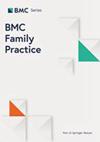促进加拿大土著人民的健康公平:制定患者复杂性评估框架
IF 3.2
3区 医学
Q1 MEDICINE, GENERAL & INTERNAL
引用次数: 0
摘要
由于殖民化遗留下来的各种因素,原住民患者在临床环境中往往有着复杂的健康需求。医疗保健系统和医疗服务提供者既没有能力找出其根本原因,也没有能力为这种复杂性制定解决方案。本研究旨在为加拿大城市原住民患者制定一个以原住民为中心的患者复杂性评估框架。研究采用了一种多阶段方法,首先对有关复杂性的文献进行回顾,然后对土著患者进行访谈,了解他们在复杂性方面的生活经验,最后由土著健康领域的 14 位医疗保健专家组成的小组通过修改后的 e-Delphi 建立共识过程,确定导致健康复杂性的领域和概念,并将其纳入以土著为中心的患者复杂性评估框架。本研究详细介绍了研究的最后阶段。以原住民为中心的患者复杂性评估框架的最终版本共纳入了 27 个概念,涵盖 9 个领域,包括生物、社会、健康素养、心理、功能、医疗服务获取、不良生活经历、复原力和文化以及医疗暴力等领域。拟议框架概述了表明土著患者健康复杂性的关键组成部分。该框架可作为医疗服务提供者的参考来源,为他们向土著患者提供医疗服务提供依据。该框架将通过增加不常见的领域来推动病人复杂性评估工具的学术研究,并扩大这些工具的应用范围,以减轻土著居民等服务不足人群所经历的种族主义。本文章由计算机程序翻译,如有差异,请以英文原文为准。
Advancing health equity for Indigenous peoples in Canada: development of a patient complexity assessment framework
Indigenous patients often present with complex health needs in clinical settings due to factors rooted in a legacy of colonization. Healthcare systems and providers are not equipped to identify the underlying causes nor enact solutions for this complexity. This study aimed to develop an Indigenous-centered patient complexity assessment framework for urban Indigenous patients in Canada. A multi-phased approach was used which was initiated with a review of literature surrounding complexity, followed by interviews with Indigenous patients to embed their lived experiences of complexity, and concluded with a modified e-Delphi consensus building process with a panel of 14 healthcare experts within the field of Indigenous health to identify the domains and concepts contributing to health complexity for inclusion in an Indigenous-centered patient complexity assessment framework. This study details the final phase of the research. A total of 27 concepts spanning 9 domains, including those from biological, social, health literacy, psychological, functioning, healthcare access, adverse life experiences, resilience and culture, and healthcare violence domains were included in the final version of the Indigenous-centered patient complexity assessment framework. The proposed framework outlines critical components that indicate the presence of health complexity among Indigenous patients. The framework serves as a source of reference for healthcare providers to inform their delivery of care with Indigenous patients. This framework will advance scholarship in patient complexity assessment tools through the addition of domains not commonly seen, as well as extending the application of these tools to potentially mitigate racism experienced by underserved populations such as Indigenous peoples.
求助全文
通过发布文献求助,成功后即可免费获取论文全文。
去求助
来源期刊

BMC Family Practice
医学-医学:内科
CiteScore
3.20
自引率
0.00%
发文量
0
审稿时长
4-8 weeks
期刊介绍:
BMC Family Practice is an open access, peer-reviewed journal that considers articles on all aspects of primary health care research. The journal has a special focus on clinical decision making and management, continuing professional education, service utilization, needs and demand, and the organization and delivery of primary care and care in the community.
 求助内容:
求助内容: 应助结果提醒方式:
应助结果提醒方式:


